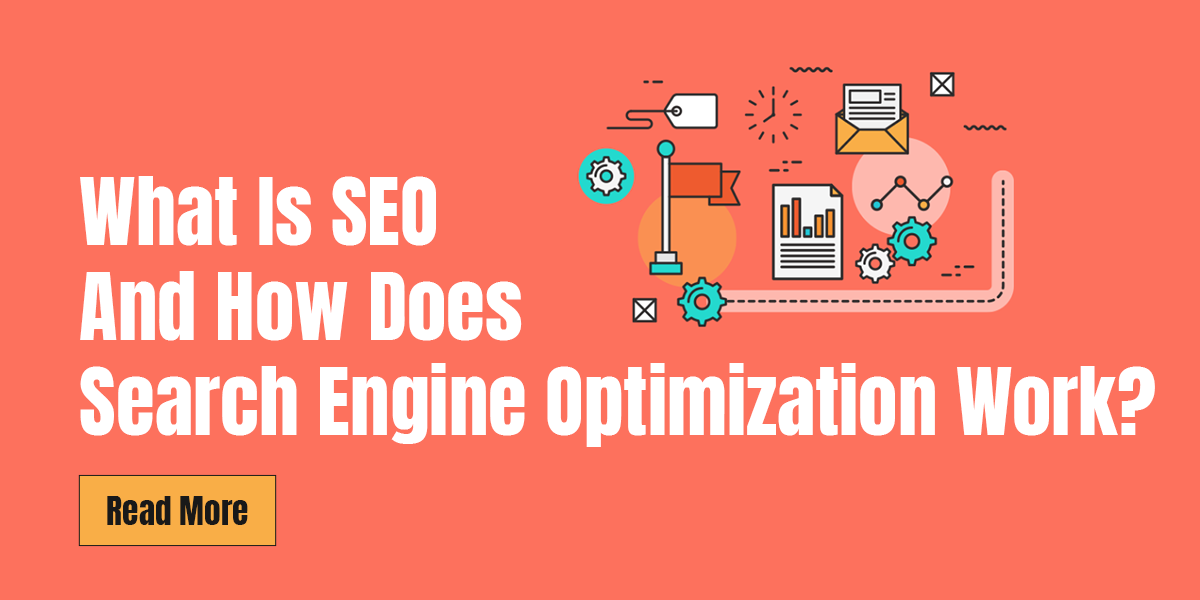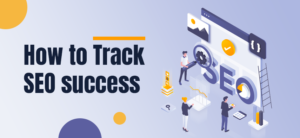What Is SEO and How Does Search Engine Optimization Work?
Published On
June 12, 2021
No wonder why the term SEO (Search Engine Optimization) is being the most searched keyword on the Internet. Borrell Associates report says by the year 2018 businesses in the United States would spend an estimated $72 billion in search engine optimization (SEO) services alone ($80B by 2020).
I’m pretty sure, you must have heard the word SEO, Search Engine Optimization. Even If you’re new to the world of search marketing, you might have come across the term “SEO” being talked about at times in marketing meetings, from the Digital Marketing peers, also possibly from the business owner who runs businesses and quite worried to get the ranking of their Business Search Keywords on the first page of the Google (or SERP as it’s sometimes called).
(If you are unfamiliar with the term SEO or you are totally new to it, don’t worry you will be no more a stranger to it after reading this blog. )
“The higher you can get your website to rank on search engines, the better your business visibility, reach, and authority”. So, here the question is how to do that. How can we make sure we show up first on the Search Engine top result?
Let’s explore the facts of how difficult it is to get rank on top of Google. Do you have any idea how many blog posts people publish each day? Well, let’s dive into the reports and find how difficult is to get the top SERP position.
And that’s only counting WordPress users. If we were to count all blog posts, that number would be even higher.
FUN FACT
According to Moz, the first page of Google captures 71% of search traffic clicks and has been reported to be as high as 92% in recent years. Second-page results are far from a close second coming in at below 6% of all website clicks.
“Search engine optimization (SEO) is the process of improving the quality and quantity of website traffic by increasing the visibility of a website or a web page to users of a web search engine” – Wikipedia.
Are you curious to know, what magic SEO works on the article/web pages to just make Google very likely to include the content at the top results whenever a user searches for that particular keyword?
But to understand how google shows up first in the search engine results, you first need to understand how search even works.

Search engines are just answering machines. In layman’s terms, Google is one giant pot with tons and tons of information. They scrub a lot of content pieces and evaluate hundreds of factors to determine which content answers your query in the most appropriate way.
Search engines perform this by exploring and locating all data available on the Internet including PDFs, web pages, videos, images, etc. with a defined process that is well known as “crawling and indexing,” next it compares how well it matches with the search query of the user in a process which we refer as “ranking.”
Seo, Search Engine Optimization is no less than a modern-day miracle. We all ultimately want visibility and ranking on top of SERP and for that, we pay big money to marketing agencies or freelancers to help our business rank on SERP.
So, I will discuss here my perspective on the SEO landscape today. In general terms, Search Engine Optimization (SEO) works by demonstrating to search engines that your content is the best result for the topic at hand by searching for similar results against billions of data to ensure that you get the exact search results.
A well-Optimized business, product, or blog page gives the most appearance on Search Engine Ranking. In a survey, it’s found that more than 90% of the business owners wish to perform best on the Organic Search ranking of their website. And this can only be done by optimizing for SEO which will get you found, deliver more passive traffic, and increase revenue.
SEO is a proven way to generate organic traffic for your websites. Paying close attention to these methods will help improve your website content, authority, rankings, traffic, and conversions.
Now since you’ve got to know how to show up on your page in search results, it’s time to understand the importance of keywords play in terms of getting higher rankings.
Keyword research is the practice of finding the best possible search queries which may be appropriate or likely possible to match your business and your customers’ demand.
It’s very important to understand what your customers are actually searching for, and as long as people are using the search engines by adding a query into the search box or using voice search simply, keywords will continue to matter and it will remain the key factor to look and optimize your business page.
There are at least five-six good ways to do it.
On-page SEO, it’s the process of optimizing your individual web pages in order to get a higher ranking and earn more passive organic traffic to your website.
Smart SEO marketers understand the importance of on-page optimization and how to do it wisely. And since the search landscape is ever-evolving, it’s very important to make sure that the practitioners apply the best on-page techniques and also should be updated with the latest SEO trend and algorithms.
There are lots of best practices that tell us how to optimize on-page. Check below some of the best and proven methods that have been mentioned.
Technical SEO (Search Engine Optimization) plays a crucial factor and under this process, it ensures that your website passes all the updated technical checklists of a particular search engine with the primary objective of improving the organic rankings. Crawling, indexing, rendering, and website architecture are the basic elements of Technical SEO.
Also. It’s become equally important to look that your website is accessible to both search engines (Google Bot) and humans.
The following points have been given below to ensure and add these points you cross-check in your technical audit report for your website.
Are you struggling to get ranked in Google Search Result despite applying all On-page, technical, and your heart and soul into your content? Then you must be missing your off-page SEO strategy.
“Off-Page SEO” refers to all of the activities that you and your SEO team do away from your website to get the ranking of that specific page on Google. Though many people only associate off-page SEO with backlink building, it is way broader than this.
Check the list to ensure you are doing all these activities to get your page a better ranking. Here is the checklist:
There are many more best practices that you can perform by analyzing the analytics report.

Lastly, what matters is your website performance, how you have set up the SEO strategy, and what further steps should be taken to enhance your website.
And all these can be tracked by multiple tools available in the market by looking into the different methods and metrics.
The most important metrics when it comes to SEO are
a) average ranking position
b) the organic traffic for the keywords you’re targeting.
With my best, I have covered all the big factors that can have a huge impact on the website’s ranking. Looking into the On-page, Off-Page, technical SEO factors, and optimization around it can give you a boost in your page ranking. Google very often does update Its algorithm and keeping yourself updated with it largely helps you to sustain well in the market.
I hope this blog really helps you to understand the functioning of SEO and its impact on your content ranking. SEO is enormous, and can’t be entirely summarized in a blog but I am quite sure after reading the complete article you will have a clear precise idea of this term and how it enhances your brand visibility.
Your feedback and suggestions are valuable to us!

Get In Touch With Our Team And Experience A Smarter Approach To Digital Marketing.